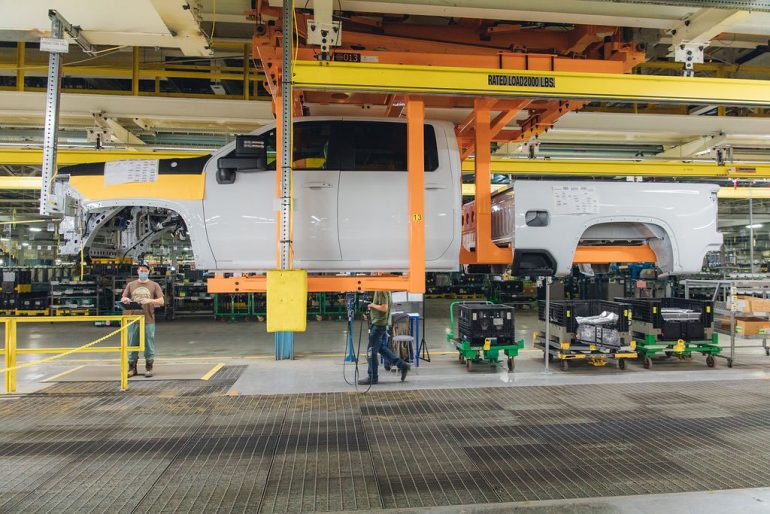
About 4,300 unionized workers have initiated strikes at three General Motors (GM) plants in Canada, marking a significant development in the ongoing labor disputes within the automotive industry. This move intensifies the pressure on GM, which is already grappling with a month-long work stoppage by the United Auto Workers (UAW) in the United States.
The Canadian union Unifor’s decision to go on strike stems from their assertion that GM has been unwilling to align with the contract agreement they reached with Ford Motor. The Ford contract included substantial wage increases of up to 25% for Canadian workers. Unifor National President Lana Payne emphasized that GM’s response has been inadequate, particularly in addressing pension demands, income support for retired workers, and the transition of temporary workers into permanent, full-time positions.
The strike was prompted by a deadline set by Unifor, which expired on Monday midnight, urging GM to negotiate a new contract. This action follows the expiration of previous contracts with the “Detroit Three” automakers on September 18. GM has expressed its commitment to continue discussions with Unifor.
This labor dispute in Canada adds to GM’s existing challenges in the United States, where the UAW strike has been ongoing since September 15. The impact of the UAW strike on GM’s production has been substantial, with estimates suggesting that the automaker has lost over 34,000 vehicles in production. GM reported having 442,586 vehicles in stock as of last week. Furthermore, the UAW strike has resulted in the layoff of approximately 2,300 U.S. workers, exacerbating the financial strain on the company.
Unifor’s strike action specifically targets GM’s Oshawa assembly complex, St. Catharines powertrain plant, and the Woodstock parts distribution center. Notably, the CAMI Assembly Plant in Ingersoll, Ontario, remains operational due to a separate agreement.
The St. Catharines plant, in particular, plays a crucial role in GM’s production, manufacturing engines for various vehicles, as well as powertrains for the Chevrolet Equinox and Corvette, along with engine component parts. Meanwhile, the Oshawa plant is responsible for building Chevrolet Silverado trucks, one of GM’s most profitable models, and its stamping operations supply various parts for GM North America. It remains uncertain when the Canadian strike will start affecting U.S. auto production.
Analysts have noted that the Oshawa plant, although the smallest of GM’s pickup facilities, produces approximately 2,800 trucks per week. However, the impact of the strike is expected to be more substantial at the St. Catharines plant, which is integral to the production of large SUVs and heavy-duty full-size pickups, as it manufactures V8 engines used in these vehicles. This disruption could potentially limit engine options for these models if the strike continues.
Unifor has adopted a “pattern bargaining” approach in its negotiations, securing an initial agreement with Ford and expecting GM and Stellantis to follow suit. In contrast, the UAW has diverged from this approach under its new leadership.
Unifor represents around 18,000 Canadian workers across Ford, GM, and Stellantis. This strike action aligns with a broader trend of labor unions resorting to strikes across various sectors, including airlines and automakers. The current labor market conditions, coupled with positive public sentiment in the U.S., have emboldened unions to take such actions, despite a decline in union membership in recent years.

Mike Floyd is a finance executive by trade and a car enthusiast at heart. As a CFO with a keen eye for detail and strategy, Mike brings his analytical mindset to the automotive world, uncovering fresh insights and unique perspectives that go beyond the surface. His passion for cars—especially his favorite, the Porsche 911, fuels his contributions to Automotive Addicts, where he blends a love for performance and design with his professional precision. Whether he’s breaking down industry trends or spotlighting emerging innovations, Mike helps keep the site both sharp and forward-thinking.